Wasting food inevitably means wasting money. Consider these tips for using what you have in better ways so you can save more.
Estimated reading time: 5 minutes
Want to save this post?
Enter your email below and get it sent straight to your inbox. Plus, I’ll send you budget recipes and money-saving tips every week!
Jump to:
It happens to all of us. You go to the grocery store with good intentions, loading up on fresh produce, lean proteins, and all the fixings for some great meals. But, somehow or other, at the end of the week or month, you’re tossing food into the trashcan, cringing over how much food you’re wasting.
To add insult to injury, you realize you’ve wasted a chunk of change as well.
Food waste is a real thing with real world consequences, but there are some simple habits you can start to help you stop wasting food and start saving more money. You’ll end up with a more efficient kitchen in the process.
Know what you have.
When you take a food inventory, not only are you assessing what you have, but you’re also guarding against overbuying. By examining what ingredients you already have on hand, you signal to your brain that you have enough.
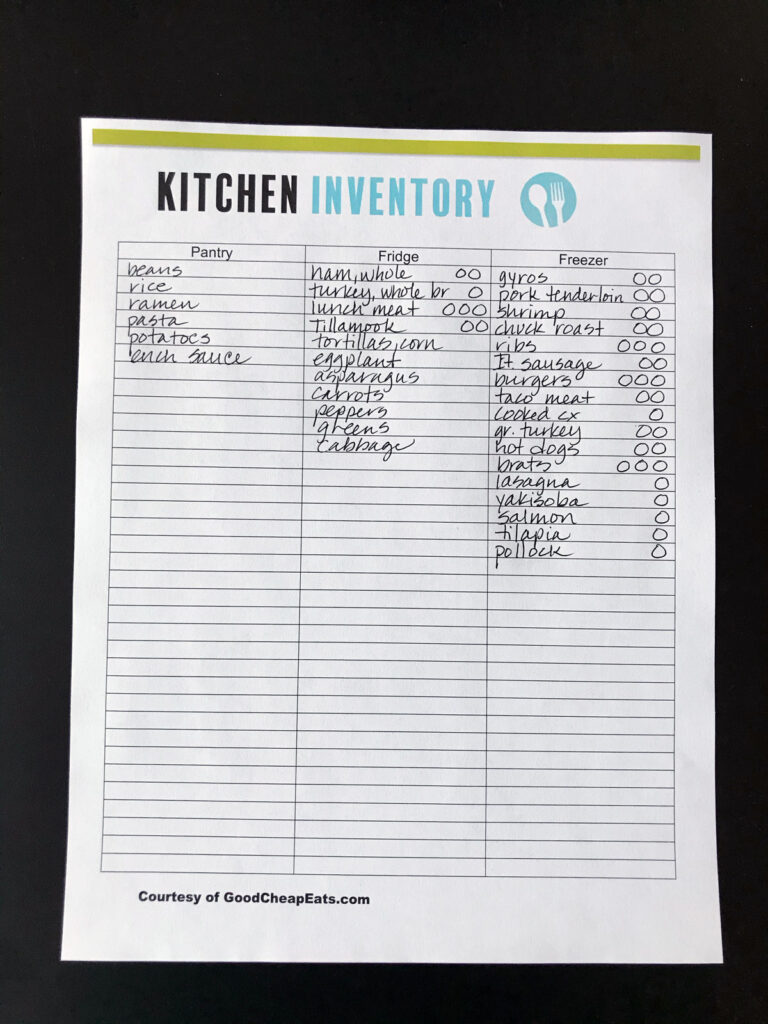
If you don’t currently have a great method for inventorying your food, download the free printable worksheet we make available to Good Cheap Eats subscribers.
Once you know what you have, it’s time to make a plan to use it!
Plan meals based on what you have.
A lot of wasting food comes from neglect. What’s in the cupboard that you could use up?
There are all kinds of recipe generators to help you use the ingredients you have on hand. Heck, you can just search our budget recipe archive with the item you want to use.
But, stop and think. Why did you buy that food item in the first place? If you had a special recipe in mind, why not add it to this week’s meal plan. If you bought it on a whim, promise yourself that you won’t experiment again until you’ve got several ideas for using said ingredient.
Plan meals with common ingredients.
As you go through your stash of food on hand, think about what favorite recipes of yours use common ingredients. When you regularly use the same ingredients in multiple ways, you’re less likely to waste food.
Each time you buy a special ingredient, again, think about how you can use the rest of the package. This list of milk recipes will come in handy so you won’t waste milk!
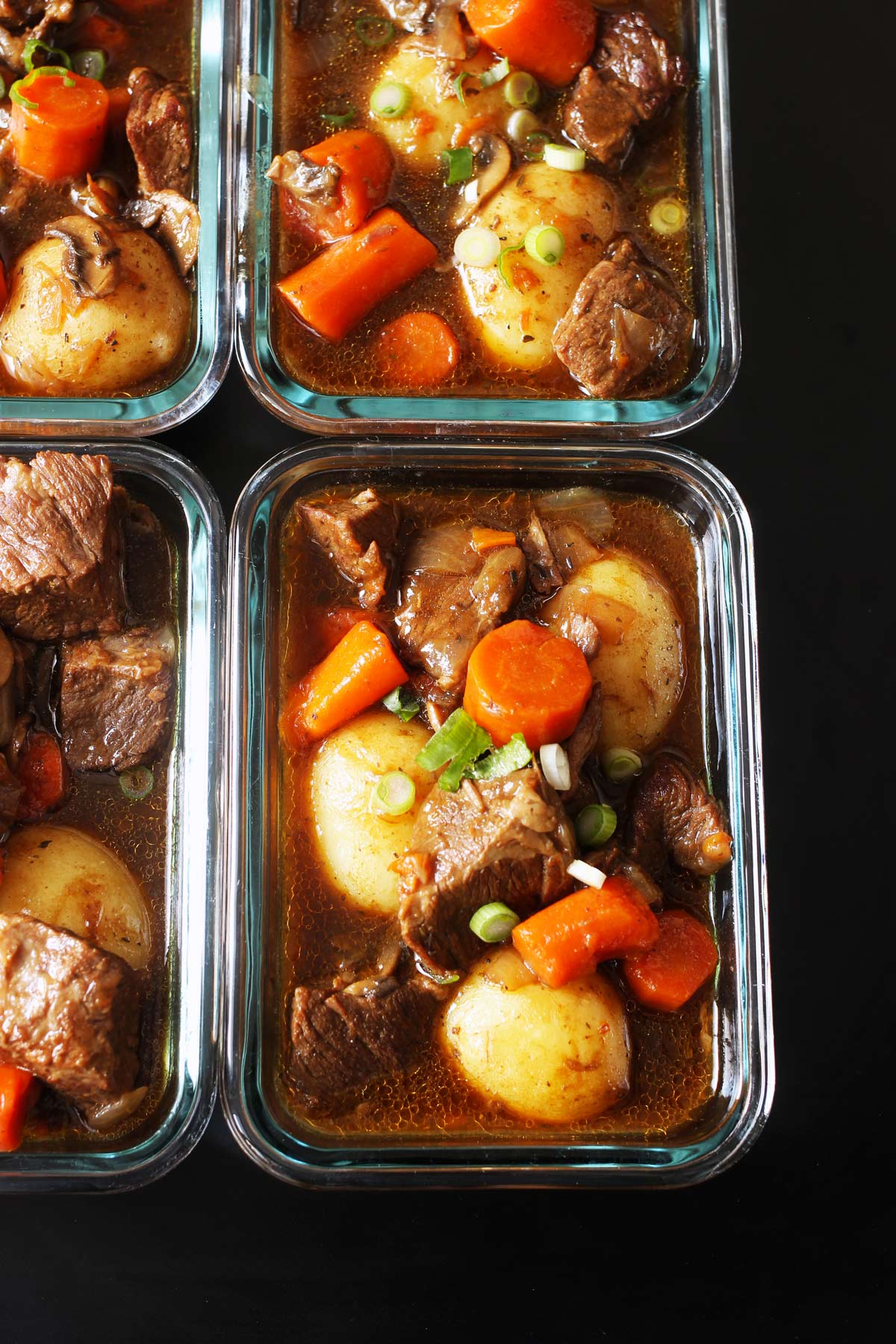
Package leftovers properly.
Got leftovers from dinner? Ask yourself these questions:
Can it be frozen?
Freezing meal-size portions is a great way to build a stash of freezer meals at the same time as avoid wasting food. Many soups freeze well as do sauces, baked goods, and cooked proteins. You can freeze goat cheese if you buy too much and can’t use it up right away!
Be sure to label the container or package with the name of the recipe and the date it was prepared.
How long will it be good in the fridge?
Most prepped food is good for 4 days properly refrigerated. Write the date on the container so you’ll know how soon to use it up.
Look at your calendar. Can you plan to use it in that time frame? Make some changes to your meal plan if you need to.
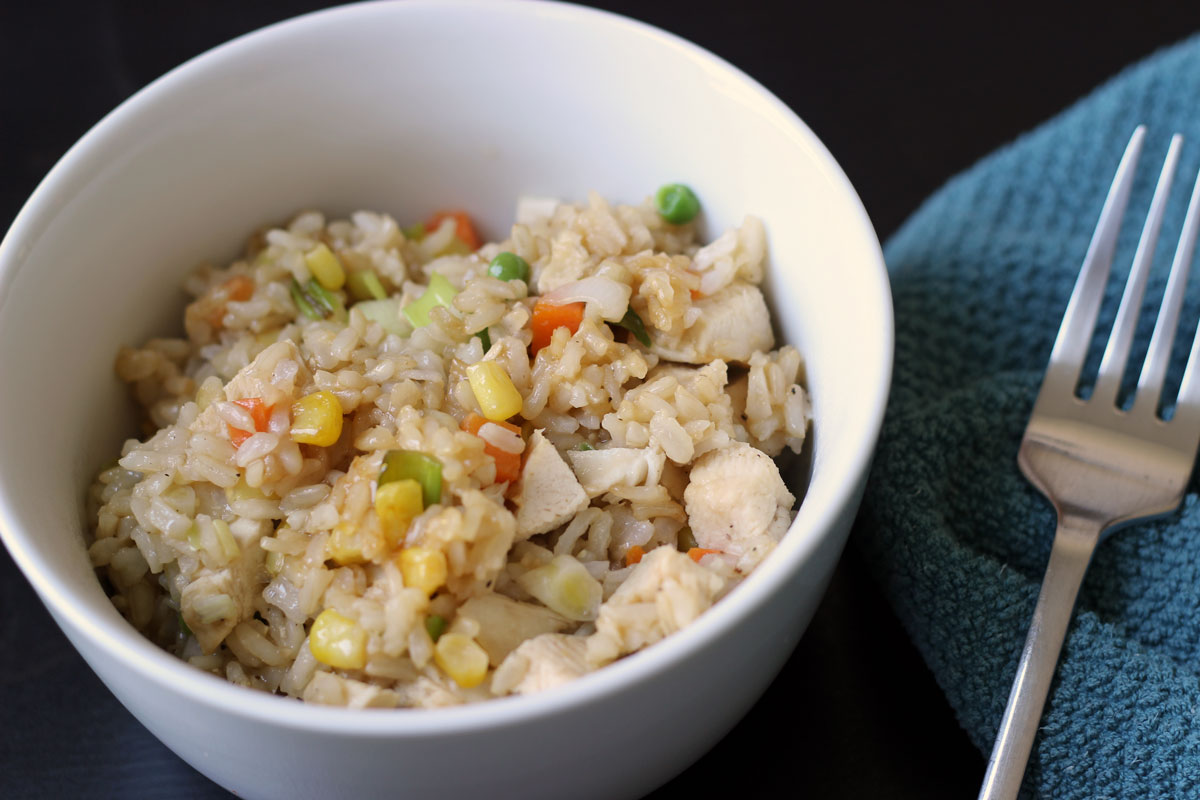
Can I stretch this into another, larger meal?
Honor the time and money you invested in this meal. How can you make the most of your food instead of wasting it?
Many meals start from leftovers but are more delicious or varied with some creative tweaks. For example, leftover rice makes a great Chicken Fried Rice. Leftover roast chicken makes a fantastic Chicken Pot Pie.
Where can I put this so I’ll remember it’s here?
Storing leftovers in a clear container on the same shelf of the fridge will make it easier to use quickly than stashed in the back of the fridge in an old yogurt container.
Trust me, falling into oblivion is a prime reason for wasting food. Make your leftovers obvious.
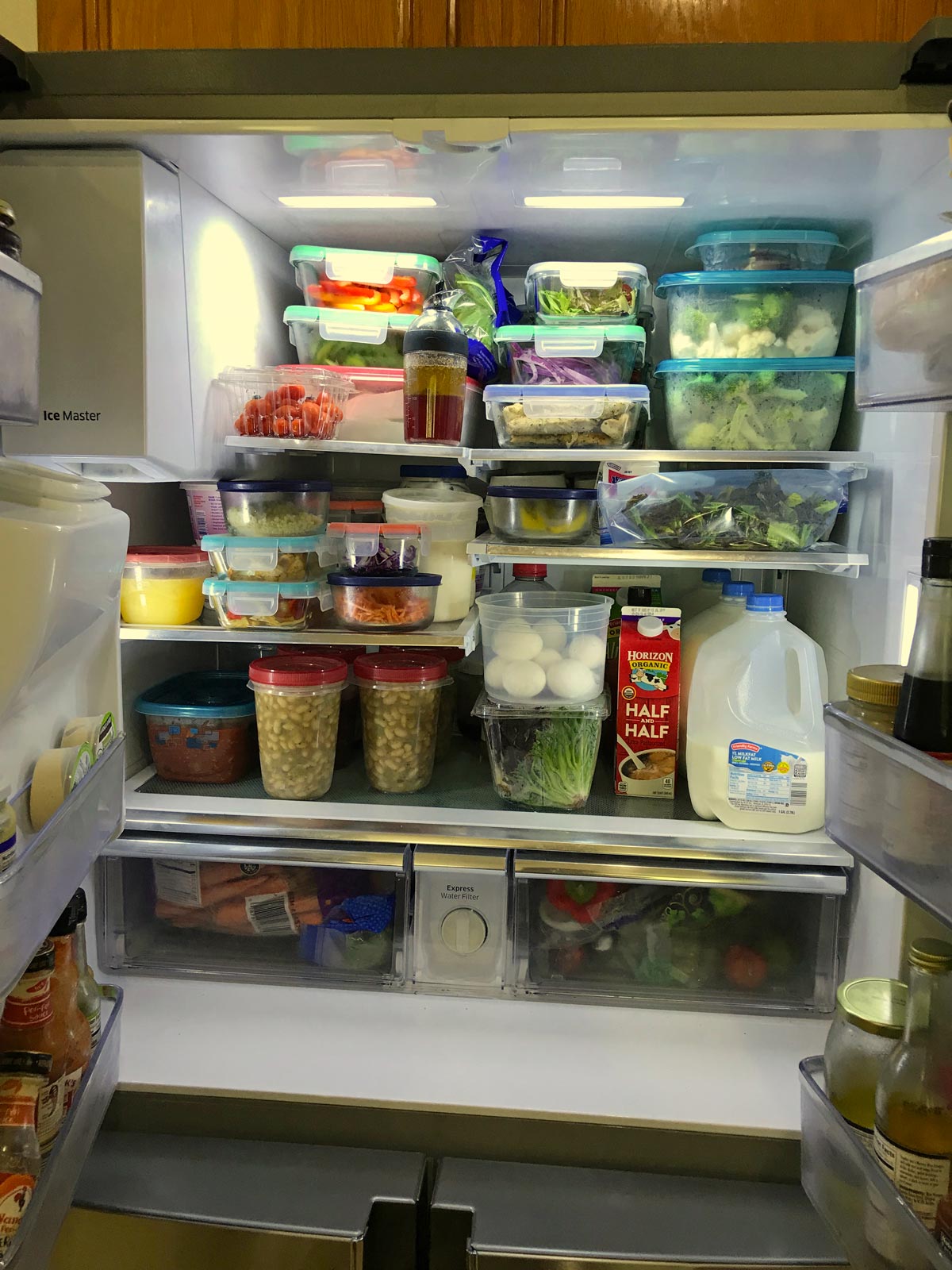
Clean the fridge every 3 days.
Depending on the size of your fridge, cleaning it may feel like a chore, but it will be worth it!
Giving everything a tidy and storing like with like on the shelves will again bring your inventory to mind. Doing it every 3 days or so will help you stay within the 4-day guideline on using up prepped food, and make wasting food much harder to do.
Identify what foods you’re wasting.
As an experiment, start tracking what food goes to waste. You can jot this down on a piece of paper or simply take a picture of what you’re tossing. Over time, patterns will emerge:
- Are you overbuying fresh produce?
- Do you buy things without a purpose?
- Do you thaw meat prematurely?
- Are you ditching your meal plan?
- Are you making too much?
- Do you forget to freeze leftovers?
Once you analyze why you’re wasting food, you’ll become more situationally aware and able to curb the food waste or at least the reasons that lead to it.
Now it’s your turn: How do YOU avoid wasting food?
Let’s chat in the comments! I can’t wait to hear what your strategies are.


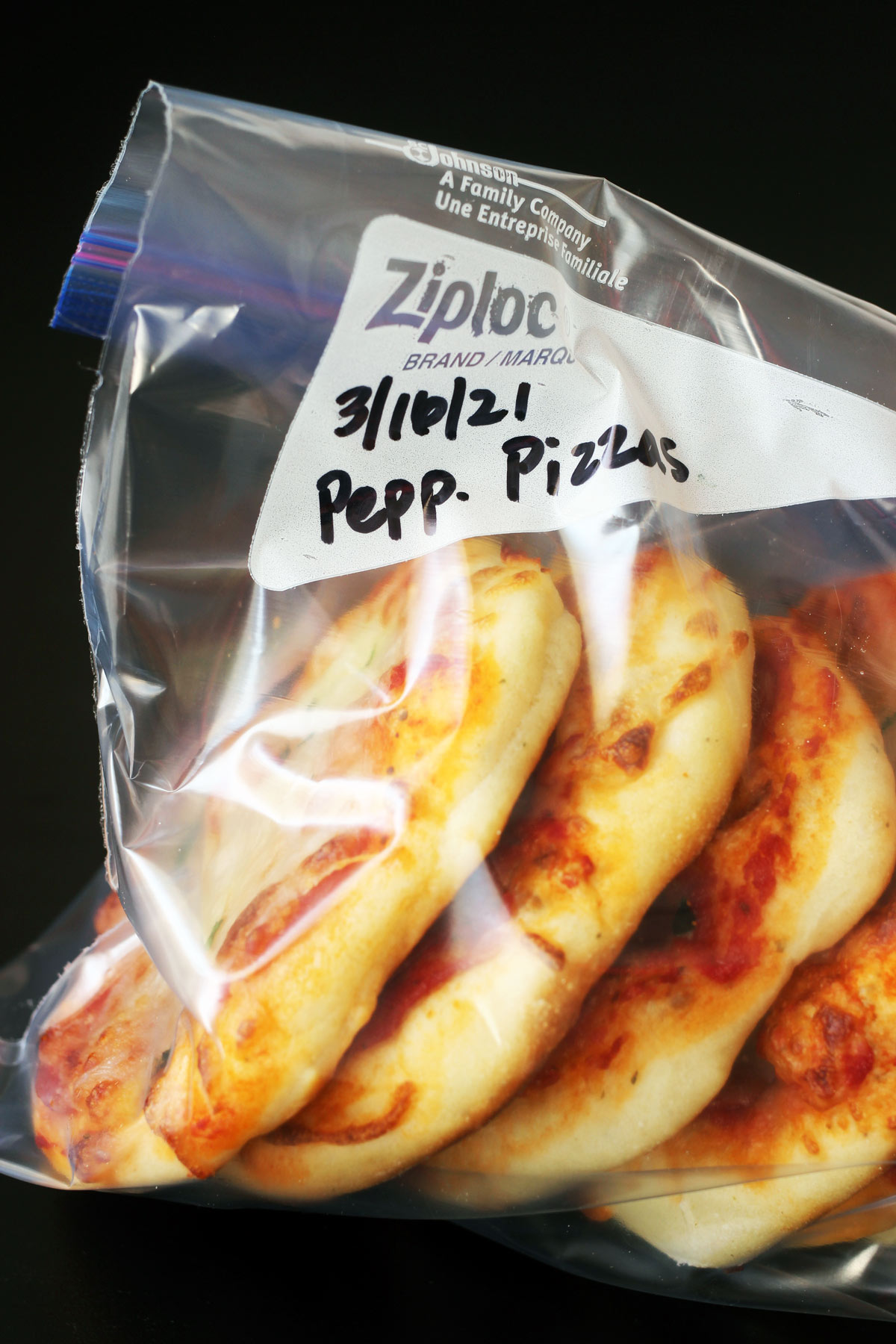
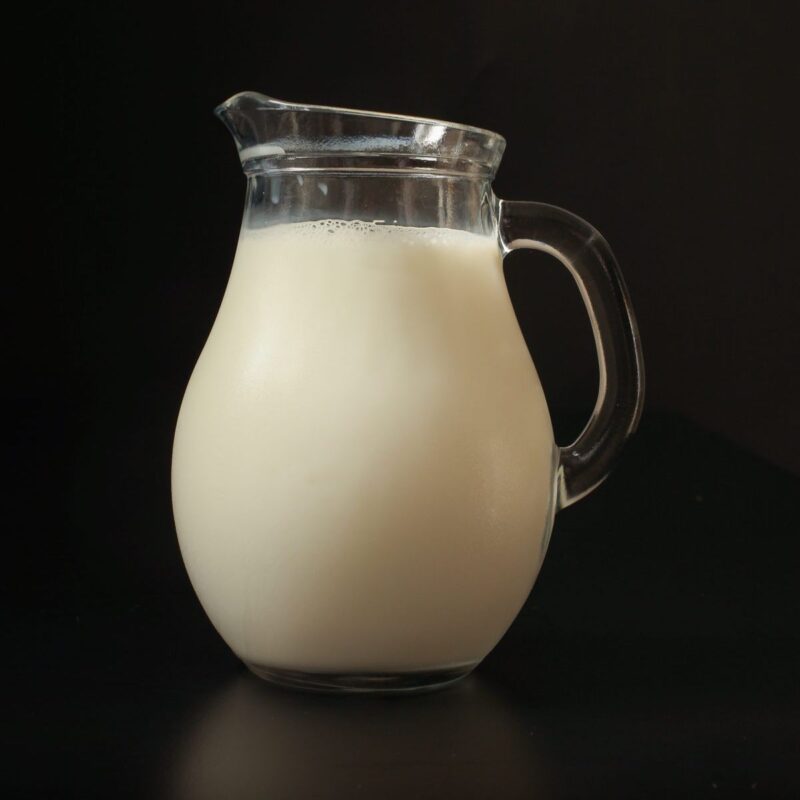
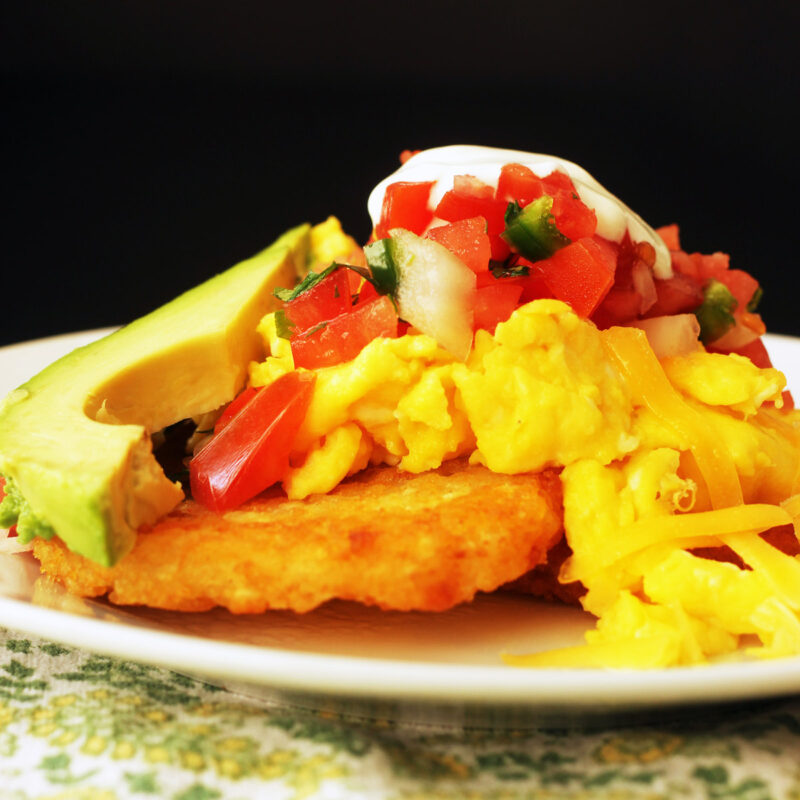
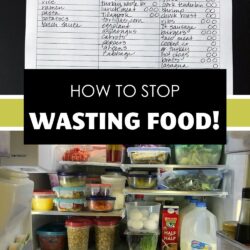
BJ welty
What can I make with expired whipping cream? Very expired.
Jessica Fisher
If it smells bad, looks bad, or tastes bad, it should be discarded.
Heather M
I love this topic! I also employ many of your strategies, Jessica. The only hitch I have is not having a big freezer, so I can’t freeze a bunch of things. It’s generally full of raw proteins, veggies, etc, with very few already cooked/prepped dishes. I have a slew of meal ideas that I use for leftovers, or for needing to be used items: stir-fries, fried rice(we often do half rice and half cauliflower rice, frittatas, soups, main dish salads using leftover proteins or grains like quinoa, stuffed peppers, roasted veggies hitting their last legs, and on and on. 🙂
Jessica Fisher
Sounds like a great system, Heather!
Janet
My children were taught from a very young age that leftovers from the night before make a quick and easy breakfast or after school snack. I rarely have leftovers for more than a day as a result and the only time I make breakfast is when I serve it for dinner. We eat a lot of fresh fruit. At the first sign it is getting past its prime, we make slushies — fruit, lemon or lime juice, and a few ice cubes in the blender.
Jessica Fisher
Sounds like you have a great system going, Janet!
Eva Lyons
One of my favorite ways to use up little bits of meat, veggies, little bits of cheese, etc. and bread or rolls about to go stale is to make “grinders” (sandwiches meant to be baked and served hot) wrapped in foil and stored in the freezer for a quick meal.
Spread the bread with mayo or mustard or butter and garlic powder, or whatever sauce you’ve got, top with thinly sliced onion, and the the meat/veggies/grated cheese. Wrap in foil and store in a gallon ziploc. Grab as needed, no need to thaw, and bake until hot.
Jessica Fisher
Sounds great!
Eileen White
Having grown up with a grandmother who raised 5 kids during the Great Depression and a mom who was one of those kids, food waste was a sin! Everything got used. Small amounts of meat and veggies went in the freezer to add to soup and stew. Cooking liquids from veggies got frozen too. A roasted chicken provided precious “chicken juice”. Added to spaghetti sauce from the freezer it added great taste. At the end of the week if there were leftovers that wouldn’t make a whole meal we made mish mash. Brown a chopped onion, add your starches then meats then veggies, chopped up as needed. When that gets heated through pour over scrambled eggs and stir till cooked. Like a frittata without the oven. We didn’t hesitate to mix a variety of stuff. I also usually threw in some shredded cheese. Yum!
Jessica Fisher
What a wealth of experiences you have to draw from! Thanks for sharing.
Kortney
“Honor the time and money you invested in this meal. How can you make the most of your food instead of wasting it?”
I love this re-frame. The small shift from negative (waste) to positive (honor the work already invested) makes all the difference!
Jessica Fisher
Amazing how much is in how we talk to ourselves!